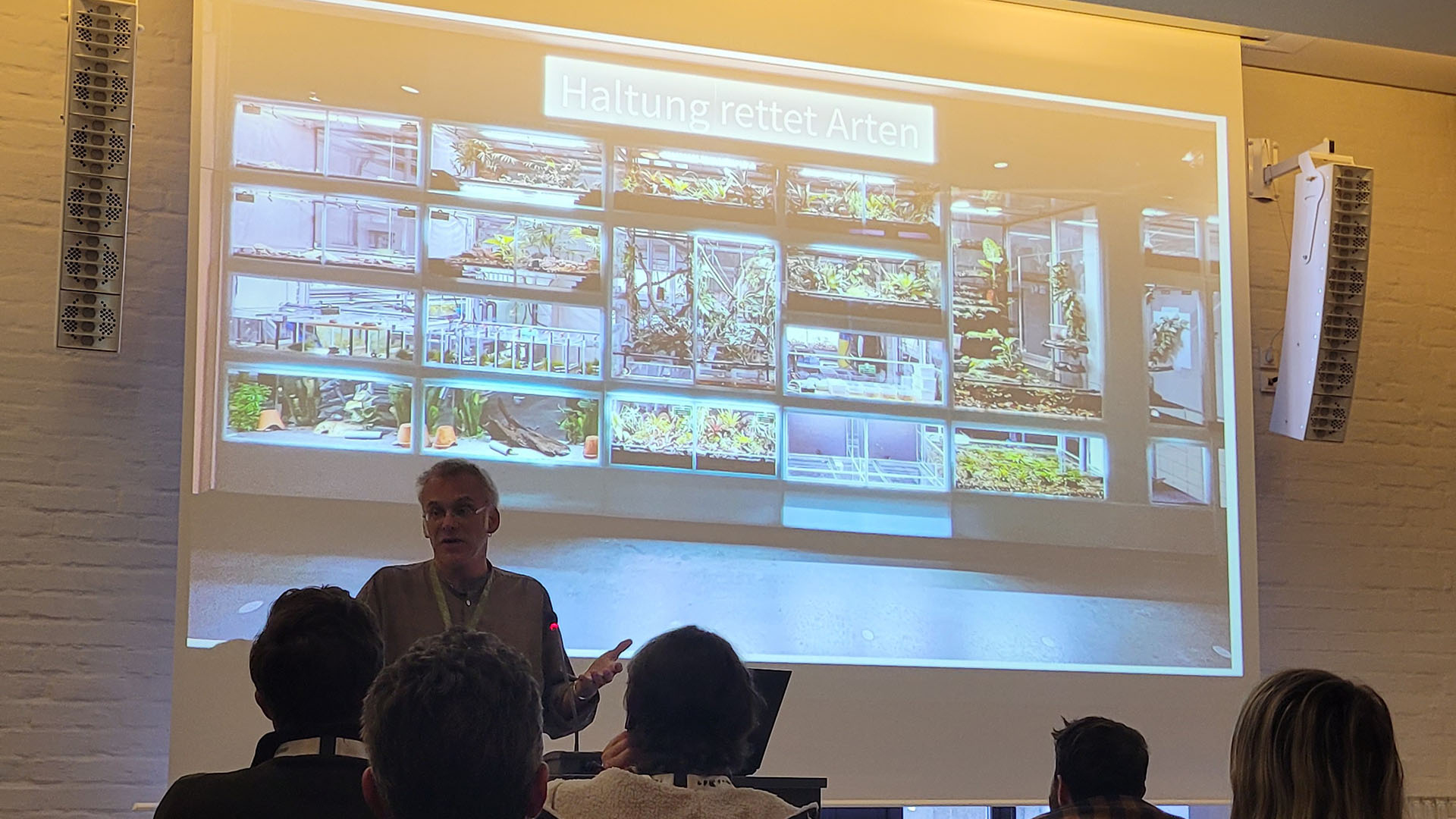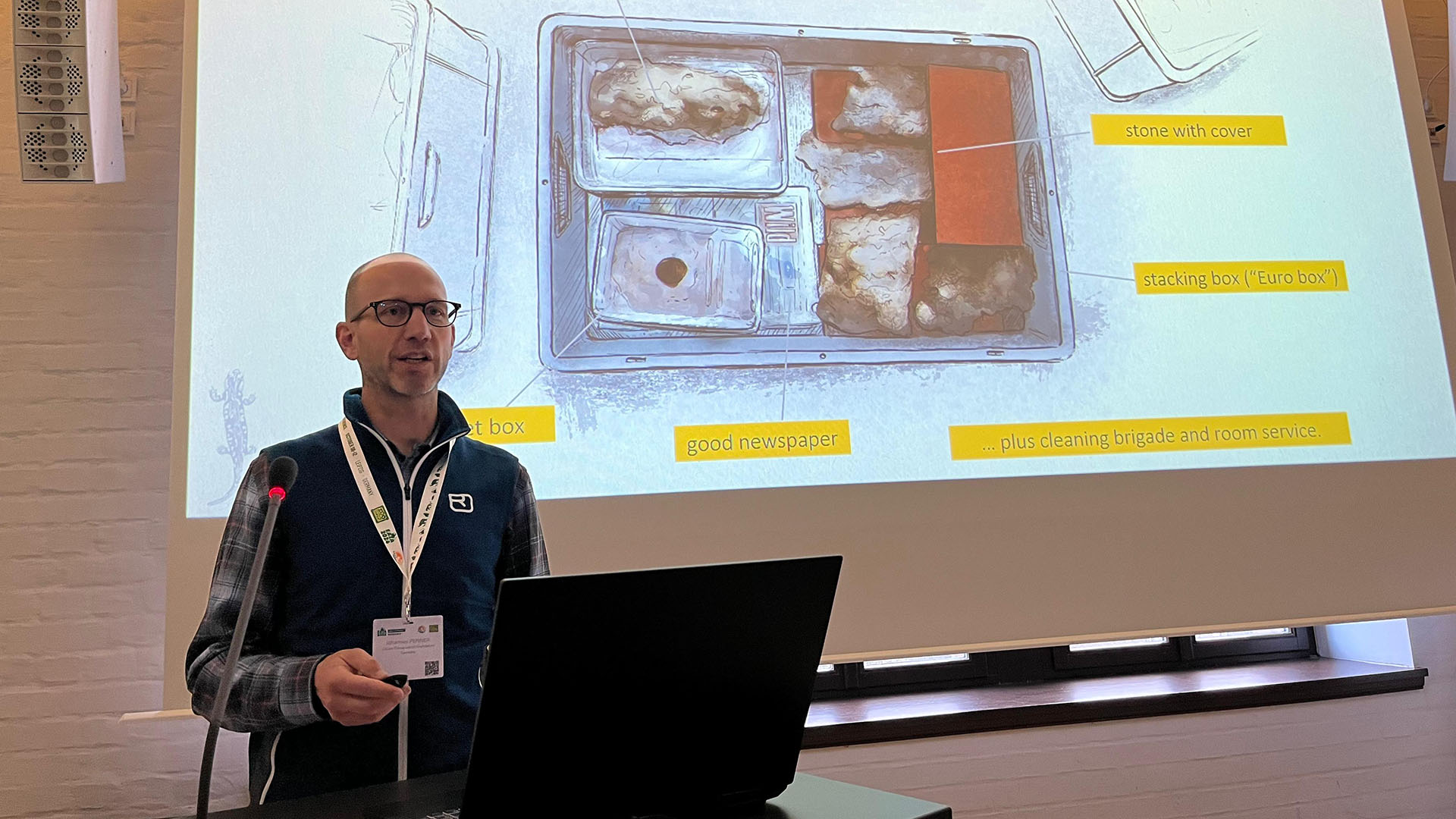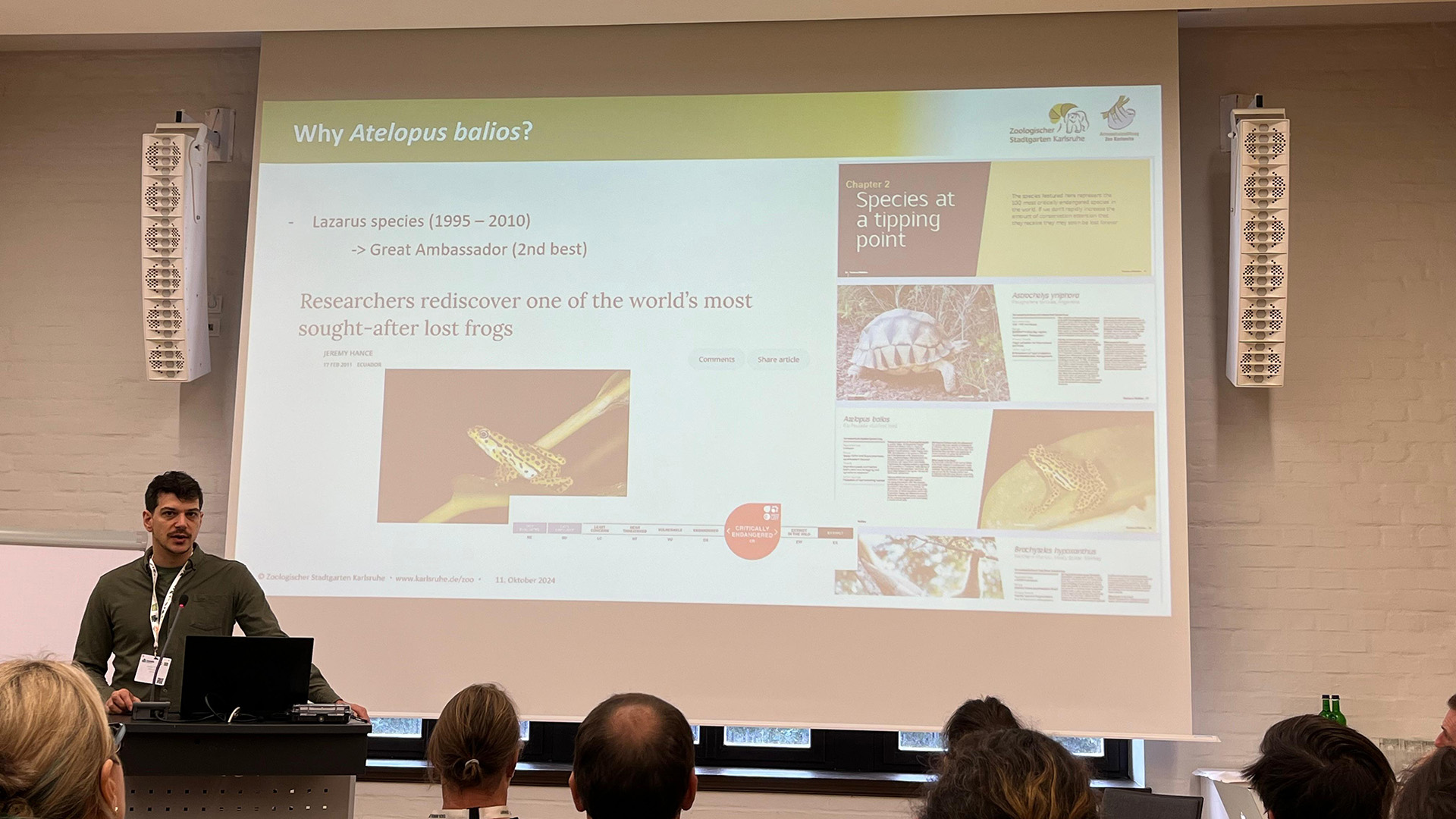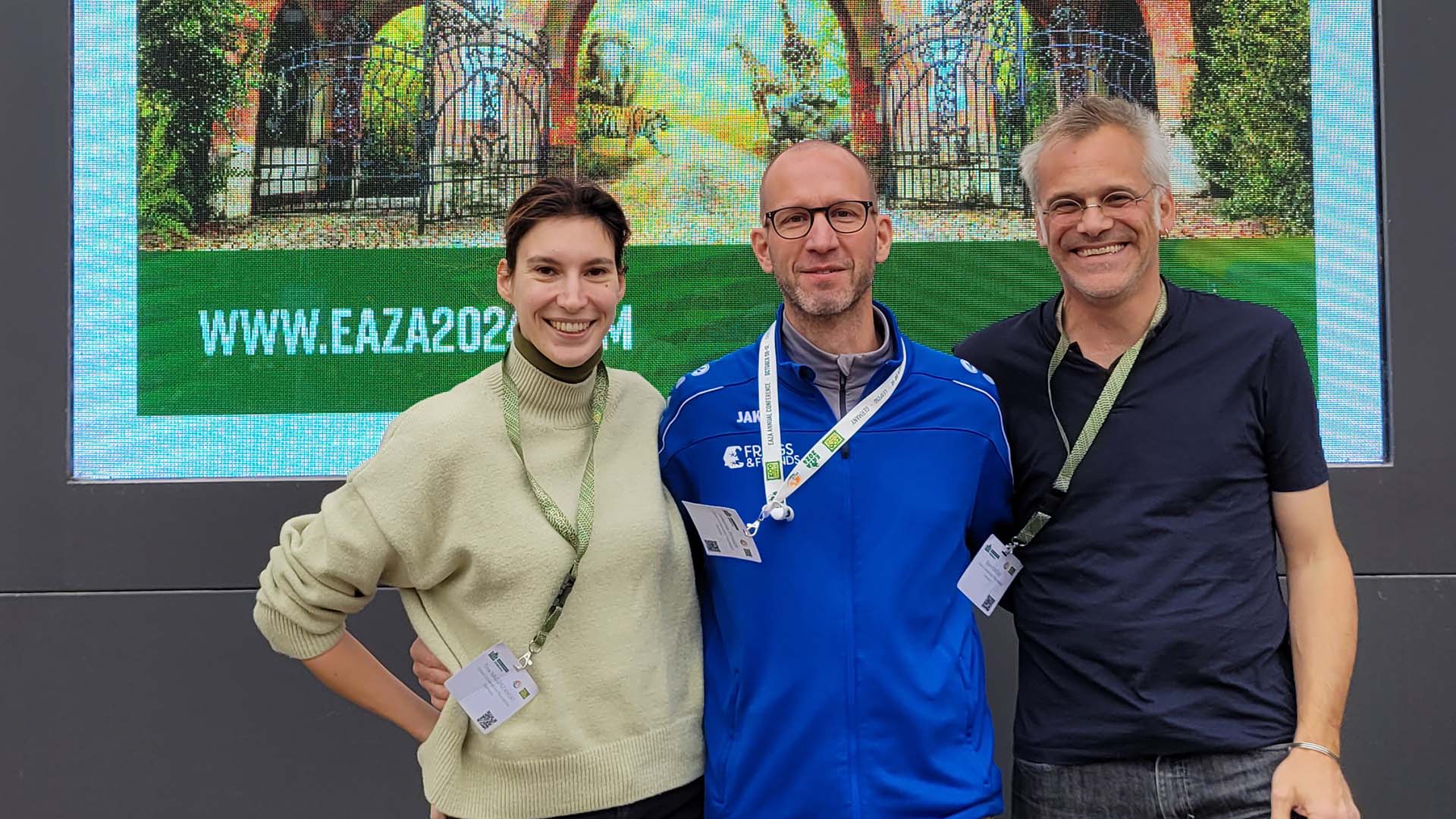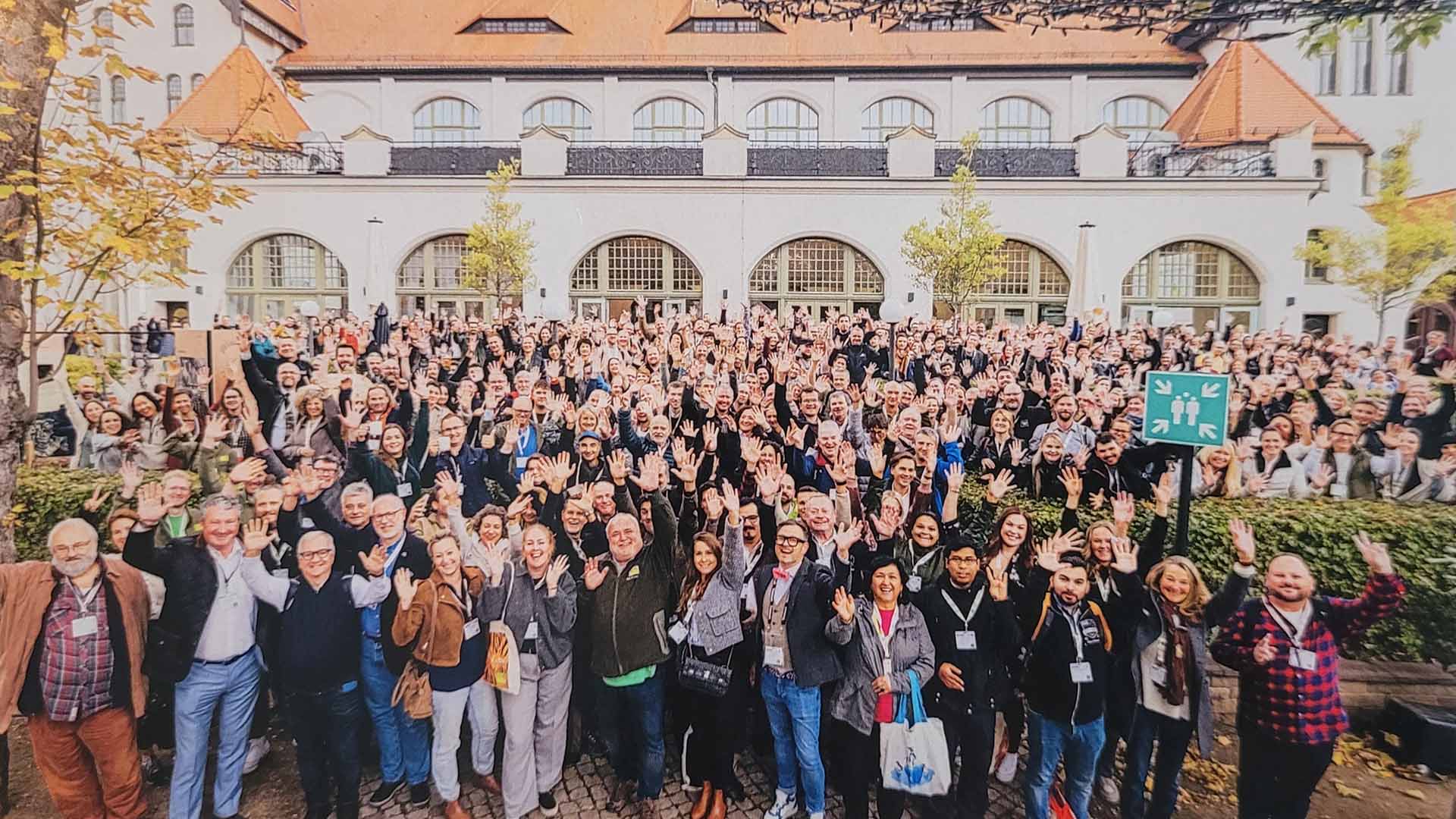
Citizen Conservation at the annual conference of the European Association of Zoos and Aquaria (EAZA)
Tags
The EAZA conference is the central meeting of European zoos. Over four jam-packed days with special topics and current issues in zoo animal husbandry are being discussed. This year, the conference took place from October 9-12 at Leipzig Zoo, with over 1000 participants from more than 50 countries attending over 130 individual events in the zoo’s own conference center.
Working together for the Fire Salamander
Citizen Conservation was not only able to attend as a guest, but (as we did before) we also presented our own work. At the meeting of the Amphibian Taxon Advisory Group (TAG), our curator Johannes Penner reported on the status of the Fire Salamander issue, presented the results of the feasibility study on the conservation of the Fire Salamander in captivity written by Frogs & Friends and the founding of the conservation network Feuersalamnander.Net. Parallel to this network of science, nature conservation and species protection in German-speaking countries, the EAZA has also decided to launch a conservation breeding program for the fire salamander. In discussions during the meeting breaks, it was agreed to actively support each other and coordinate activities.
Our team in action
An amphibian house that inspires
Björn Encke presented – also in the Amphibian TAG – the amphibium planned by Frogs & Friends at Hannover Adventure Zoo, which was opened to the public this year in May. In particular, the modern exhibition design and the didactic concept of combining naturally designed display facilities with systematized husbandry in a transparent breeding room met with an extremely positive response in the auditorium.
Mission: Rio Pescado harlequin toad
However, CC also played a role in other presentations. For example, CC Advisory Board member Lukas Reese from Karlsruhe Zoo spoke about the furious start of the CC program for the Rio Pescado harlequin toad (Atelopus balios). The founding animals were imported from Ecuador in the summer of 2023 and distributed to various enclosures after quarantine at Karlsruhe Zoo. Since then, they have been successfully bred at the zoos in Basel and Karlsruhe, as well as by a private keeper, and numerous new husbandries have been established in order to build up a stable reserve population for this species, which had previously been reported missing.
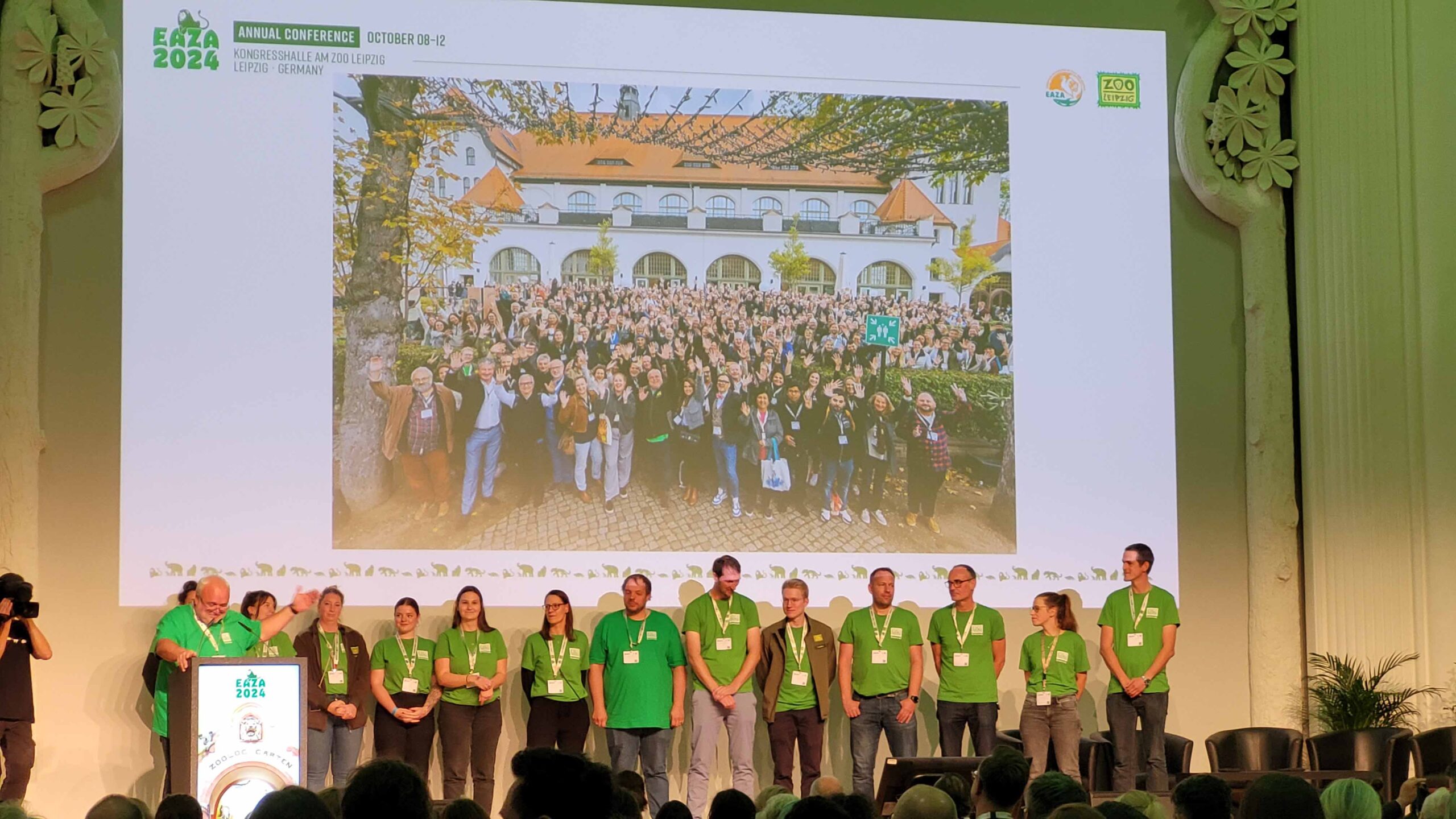
All’s well that ends well. After five intensive days, host Jörg Junhold is delighted with an all-round successful EAZA conference © Tina Nagorzanski, Citizen Conservation
Four days full of input
In addition to the animal group-specific meetings, overarching topics such as health and nutrition issues, dealing with the requirements of population management in order to be able to preserve a species in the long term or the cooperation of zoo work with the corresponding efforts in the habitat of the species itself are always addressed.
Conference with a feel-good atmosphere
However, a crucial secret of EAZA lies in the times between and after the daily meeting marathons from 8:30 am to 8 pm. In order to reconcile such a variety of cultures, experiences and regionally specific restrictions, you have to respect each other and, in the best case, really like each other. In this respect too, this year’s conference was a complete success thanks to the extremely hospitable organization of Leipzig Zoo.
